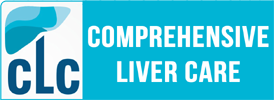Are you concerned about viral hepatitis and looking for ways to protect yourself from this potentially dangerous infection? Viral hepatitis is a major global health problem, with millions of people affected each year. In this article, we will explore how you can safeguard yourself against viral hepatitis and reduce your risk of contracting this illness.
What is Viral Hepatitis?
First, let’s discuss what viral hepatitis is and how it can affect your health. Viral hepatitis is an inflammation of the liver caused by a viral infection. There are several types of hepatitis viruses, including hepatitis A, hepatitis B, and hepatitis C. These viruses can be transmitted through contaminated food or water, blood-to-blood contact, or sexual contact with an infected person.
How can I Protect Myself?
Now, let’s dive into the steps you can take to protect yourself from viral hepatitis:
1. Practice Good Hygiene
One of the most important ways to prevent viral hepatitis is by practicing good hygiene. Make sure to wash your hands thoroughly with soap and water after using the bathroom, before preparing food, and after coming into contact with potentially contaminated surfaces. Avoid sharing personal items such as toothbrushes or razors with others.
2. Get Vaccinated
Vaccination is an effective way to prevent hepatitis A and hepatitis B. Make sure to get vaccinated against these viruses, especially if you are at a higher risk, such as healthcare workers, travelers to endemic areas, or individuals with multiple sexual partners.
3. Use Protection During Intercourse
To reduce your risk of contracting hepatitis B and hepatitis C through sexual contact, make sure to use protection such as condoms. This can help prevent the transmission of these viruses and protect both you and your partner.
4. Be Cautious with Tattoos and Piercings
If you are considering getting a tattoo or body piercing, make sure to choose a reputable and licensed facility. Ensure that sterile equipment is used, and proper hygiene practices are followed to prevent the transmission of hepatitis viruses.
5. Avoid Sharing Needles
If you use syringes for medical purposes or recreational drug use, never share needles with others. Sharing needles can significantly increase your risk of contracting hepatitis B and hepatitis C. Make sure to use sterile needles and dispose of them properly after use.
Conclusion
In conclusion, protecting yourself from viral hepatitis is essential for maintaining your overall health and well-being. By following these preventive measures, you can reduce your risk of contracting hepatitis A, hepatitis B, or hepatitis C. Remember to prioritize good hygiene, get vaccinated, use protection during intercourse, be cautious with tattoos and piercings, and avoid sharing needles. If you have any concerns about viral hepatitis or need more information, consult with a healthcare provider for personalized recommendations. Stay safe and stay informed!

